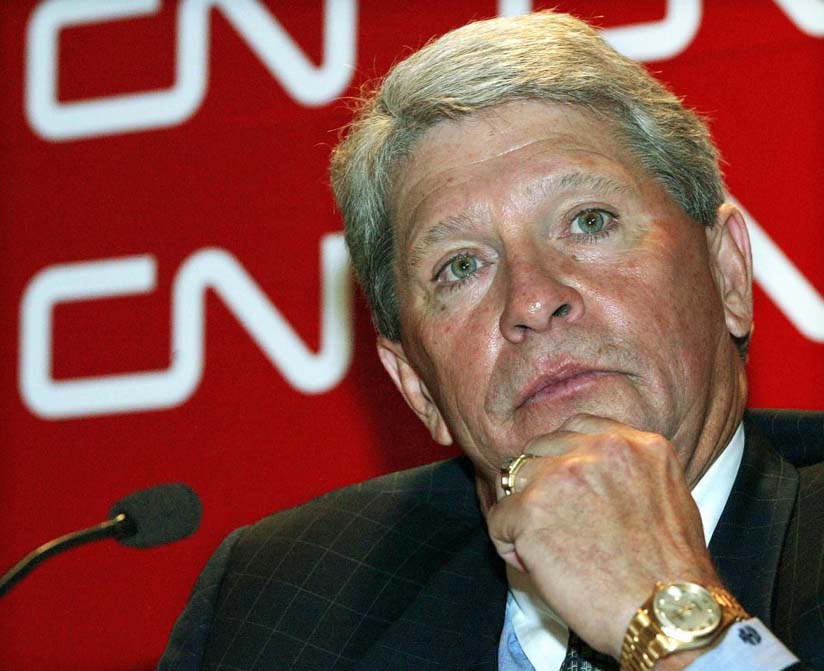
North America - "You could say CP, and their ears would just twitch with red blood at the lobe," the late Hunter Harrison told
me about how his CN colleagues Paul Tellier and Michael Sabia would react to the mention of their western rival, CP.
The railroading legend added that it was mutual.
"They hated CN as much as CN hated CP."
With both railroads bidding for Kansas City Southern (KCS), the century old rivalry isn't getting any gentler.
This week's US$33.7 billion competing bid by CN for KCS laid bare their long-running enmity.
That latest bomb dropped a little over a month after CP initially offered US$29 billion for the smallest of North America's big railroads.
It must have had them climbing the walls at CN.
More than 20 years ago, CN's then-CEO Paul Tellier wanted to buy KCS to enlarge the company's NAFTA footprint, shortly after acquiring Illinois Central (IC)
which gave it access to the Gulf of Mexico.
Tellier wanted to go right into Mexico, which KCS affords.
But Tellier's operating chief was Memphis-native Hunter Harrison, who became the industry's turnaround king, ultimately running four publicly traded
railroads, including both CN and CP.
The often polarizing Harrison didn't like KCS or its Mexican exposure.
In no uncertain terms he told Tellier, so they moved on.
But since then, KCS has become more attractive.
The smallest of the big seven, and a north-south "road,", it's thought to be the only major North American railroad acquisition that the regulator,
the U.S. Surface Transportation Board (STB), will approve.
Meanwhile, CN's desire to acquire KCS apparently never went away.
I'm told by more than one knowledgeable person that in recent years, it considered making a bid for it.
However, once Donald Trump became U.S. president, the risk associated with Mexico skyrocketed, and CN backed off.
Now with Joe Biden making nice with his USMCA partners, KCS is in the crosshairs again.
But CP's CEO, Keith Creel, whose contract was recently amended to ensure he remains on the job until at least 2026, wants to see this transaction
through.
On a conference call on Wednesday, Creel argued why CP's lower bid is superior, why he won't raise it, and why CN's is "fool's gold", and not
approvable.
He also stung CN management by saying practitioners of Precision Scheduled Railroading, Harrison's much-vaunted operating philosophy, "don't work there
anymore."
In a letter to KCS' board, CN's CEO JJ Ruest called CP's assertions "inaccurate and unfounded."
Friday, in a letter to regulators, CN refuted CP's claim that its offer is "anti-competitive," calling it a "gross
overstatement."
For his part, Creel knows CN.
Previously, he was its chief operating officer, and heir apparent before being recruited to CP by his mentor Harrison, after the latter infuriated CN by
joining CP.
It sued Harrison and later extracted a punishing price for luring away Creel.
Friction between the companies dates to the formation of CN in 1919 by the Canadian government after the insolvency of other railways.
CP viewed itself as a bastion of private enterprise, and was disdainful of CN when the latter operated as a Crown Corporation for 76 years.
CN drew particular scorn from CP when two former public servants, Tellier and Sabia, launched it as a publicly traded company in 1995.
Harrison's own leap to CP, viewed by CN as disloyal, didn't help relations.
But shareholder value creation in the industry has been stratospheric, arguably due to the intensity of operators like Harrison and Creel who started at
ground level.
When CN went public, its market value was $2.16 billion.
It's now worth almost 50 times that.
CP is worth almost 10 times what it was when American activist shareholders began buying shares in 2011, a prelude to installing Harrison as CEO.
In recent years, shareholders of major U.S. railroads have also enjoyed the ride.
Since Harrison died in 2017, all but one adopted a version of his operating philosophy, leading to higher returns.
For a lucrative, transformative, transaction, look no further than CN's purchase of IC in 1998 for US$3 billion.
That acquisition was negotiated by Tellier and Sabia, then CFO and now Canada's deputy finance minister.
It not only brought the industry's best operators to CN (Harrison and Creel), but secured a line to the Gulf, opening up the heart of North America, and making
it a three-coast railroad.
KCS is now about double the size of IC and CN is offering approximately ten times as much (as IC).
While rivalries are emotional, they can also be costly.
Howard Green.
(because there was no image with original article)
(usually because it's been seen before)
provisions in Section 29 of the Canadian
Copyright Modernization Act.
